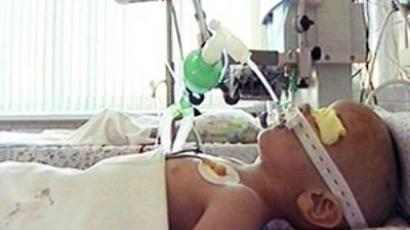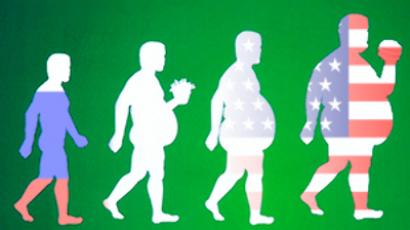Killer genes offer hope for eventual cancer cure
Russian scientists seem to have found a new weapon to fight cancer – killer genes. While the discovery may offer hope, there's a long road ahead before the technique can be used to treat patients.
The mission of the killer genes is to destroy cancer cells. Russian scientists say this powerful weapon could be a breakthrough in the treatment of the disease.
”It’s possible to inject genes that work properly into the tumor, where the genes are not functioning correctly. It gives us hope that these good genes will make the tumor gradually disappear,” says Evgeny Sverdlov, Director of the Institute of Molecular Genetics.
Unlike many other cancer fighting techniques, this one uses a biochip which can not only target the tumor cells, but also preserve the healthy ones. It sounds like the perfect medicine. So why is it not yet being used?
The killer gene method has not been tested on humans yet. Usually the path from the lab to the hospital takes years. But cancer can kill fast, and for many patients, time is all-important.
At the age of two, Alina Malashina was diagnosed with leukemia. Chemotherapy did not work. Doctors said her chances were slim, but still, they managed to save the girl. After a complicated spinal cord operation, Alina’s cancer went into remission. At the age of five, she’s a healthy child, but still visits the hospital for regular check-ups.
“Chemotherapy is usually very tough on children. Their immune system suffers heavy damage, and they have to live in isolation. But kids are kids, and they want to live and play with their friends. So if a new medicine is introduced, it’s always important for these children,” says Marina Malashina, Alina’s mom.
Dozens of anti-cancer drugs appear on the market each year, but none of them is 100% effective. In Russia alone, 450,000 patients are diagnosed with cancer each year. For them, and thousands of families like the Malashins, who are afraid that the illness might return, the only thing out there is hope. The hope that an effective cure for cancer will finally be found.
And whether it will be new pills, or the killer genes discovered by Yevgeni Sverdlov, it's crucial for the patients that these methods should be quickly but thoroughly tested.














